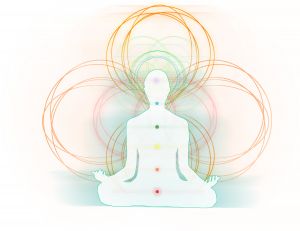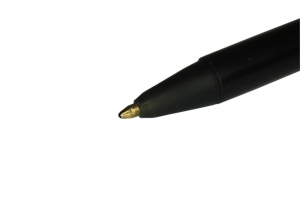A few years ago, I left a professional organization because of dialogues on its email list which dismissed spiritual views as New Age fluff. Since then, I have been quiet about the fact that I view spirituality and science literacy as somewhat compatible. I’ve been concerned about negative repercussions that might emerge if I stand up for my views, since I write about science.
This post explores my perspective on why spirituality and science writing can sometimes be compatible. It isn’t intended to cover the very important question of how to communicate about science with people who have religious views that may differ from one’s own. That question is very complex; the answers could fill an entire book.
Understanding the Benefits of Spirituality
Some medical professionals advocate using evidence-based practices without necessarily tracking down the reasons that they work. There is ample evidence that spirituality â€" defined as meditation, mind/body practices, and/or belief in something greater than oneself â€" does provide health benefits. One recent example was a book by Derek Bok, who said religion is much more important than wealth for people’s well-being and health.
Belief in something greater than oneself does not imply literal belief in a higher power that looks like us. One might believe, for example, that the entire universe is interdependent and no one is really on his or her own. (This is why I write about bipartisanship and organize events that bring groups together, by the way.) One might believe visualizing a higher power can lead to insights and/or health benefits. One might also believe there is some value to synchronizing with a higher purpose that stems from solid ethics.
It doesn’t take a Ph.D. to recognize the value of meditation, qigong and yoga. One of my employers, a health organization, recently held a conference where a presenter described the value of yoga for reducing anxiety. Our society tends to categorize the mind and body as separate. I have no reason to believe that this artificial division is true. We think what we think because we feel what we feel and vice versa. Therefore, we can gain insight by developing body awareness and tapping into things that we may not notice during a busy day.
Getting the Facts Right
Modern science and medicine have a relatively rigorous peer review process which shows some treatments work better than others. Not all alternative approaches are equally effective. Some have been tested, some haven’t been measured, and some appear not to work. For example, I would use an herbal remedy or a vitamin before I would try homeopathy.
If you venture into a health food store, you will find the products that work sitting on the same shelf as the ones that don’t. It’s your job to be an informed consumer, just as you should be with mainstream medicine. Also, if a remedy isn’t working, don’t keep taking it just because the practitioner has encouraged you to. Get a second opinion or find an alternate solution.
There are also archaic systems of thought, like astrology, that haven’t been proven to work. I would suggest drawing on one’s own self-knowledge or using personality-based systems like the MBTI instead. Similarly, I believe the chakra system does not exist, although I do think some of those locations are important and that visualizing a chakra might have a positive effect on one’s health.
Visualizing Positive Outcomes
The question of whether visualizations can be helpful is very interesting. Visualizations and intentions work partly because the placebo effect and nocebo effect are real. What we visualize and expect does make a difference. For example, if I own a semi-precious stone which I believe is giving me good luck, there’s no reason to throw it away. If I have a positive association with the stone and find that I am more optimistic and proactive when I have it nearby, there’s nothing wrong with that, as long as I understand that the positive results are coming from my expectations and intentions. I’m sure that even some of the most skeptical science writers have a favorite object â€" maybe a lucky pen â€" somewhere around the house.
Obviously, there are some situations where expecting the best doesn’t work. For example, if I decided arsenic had a positive effect on digestion, I would be in for an unpleasant surprise. But in situations where the effect is positive or neutral, having a positive expectation can improve one’s results. So there’s nothing terribly wrong about attaching positive expectations to things without having a research study to back it up.
None of this means books like The Secret are accurate when they say we attract whatever we are thinking about or expecting. That is a dangerous exaggeration of the fact that we can set intentions for our lives. It is also a class-biased assumption. I’m sure there are thousands of starving and unemployed people who are thinking about breakfast right now, but that doesn’t mean they will get it. As a writer, I know that the contracts I receive depend on the market, not just on my ability to visualize results.
Does the existence of books like The Secret, systems of thinking like astrology, and unrealistic natural remedies keep me from visualizing what I want and being a spiritual person? Of course not. It’s possible to have spiritual views that are relatively compatible with science. If research says something does not work, I take that into account. But I still see spirituality as a way to improve one’s health and happiness.
And, frankly, if a potential employer reads this post and decides not to hire me because I do qigong and meditate… well, we live in a country where freedom of religion is written into the legal system. Atheism should not be required for employment in any scientific organization or membership in any professional society.


No comments:
Post a Comment